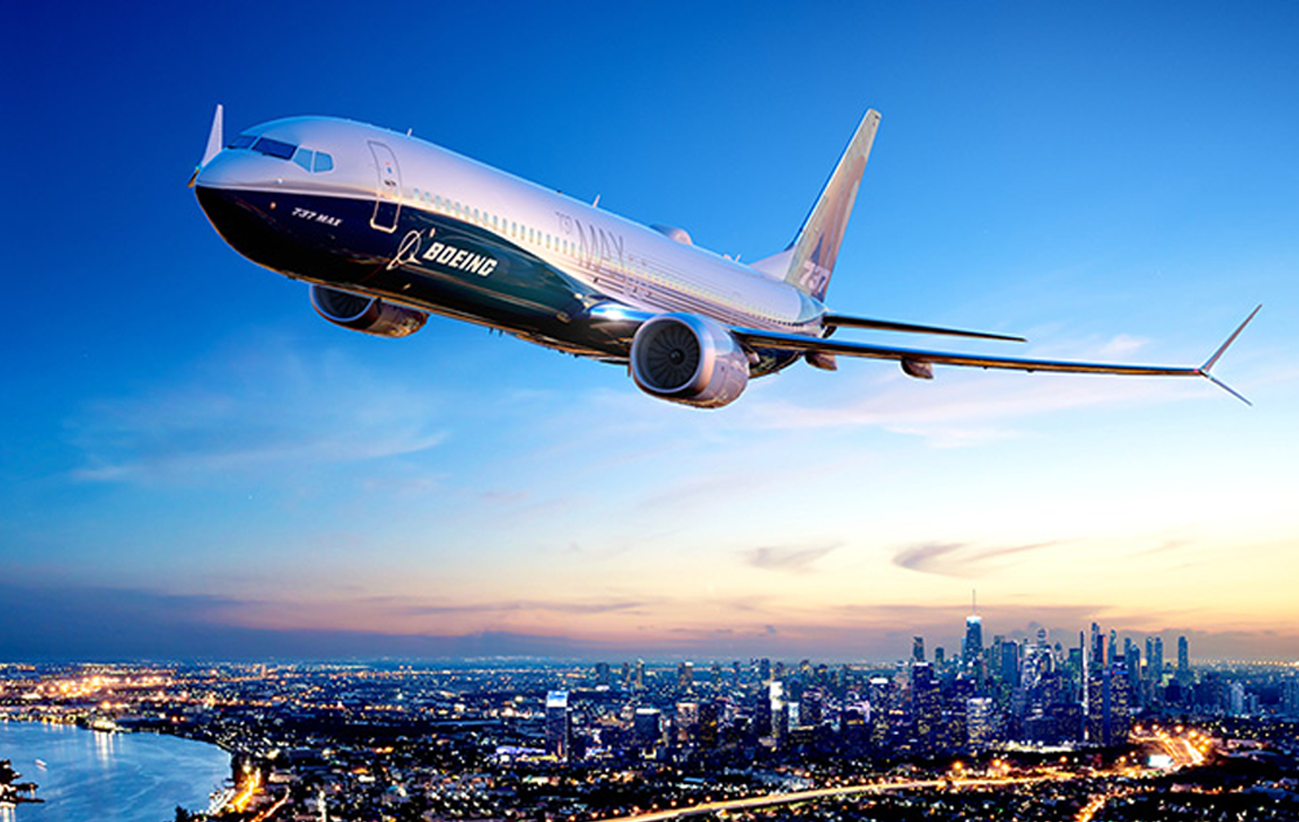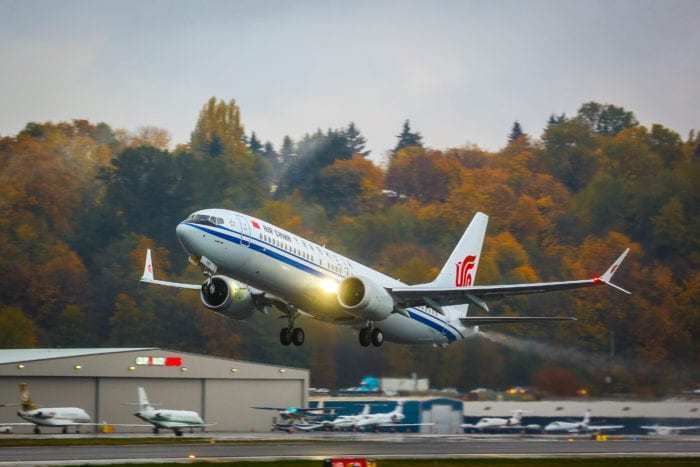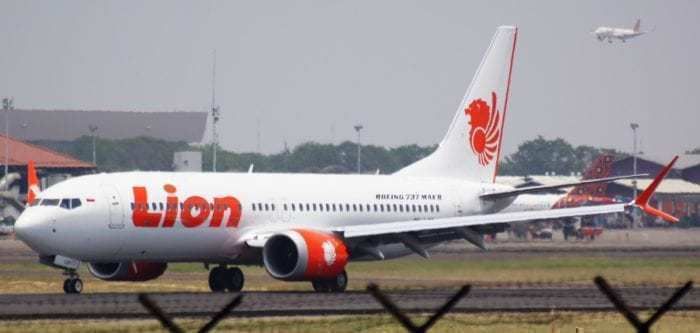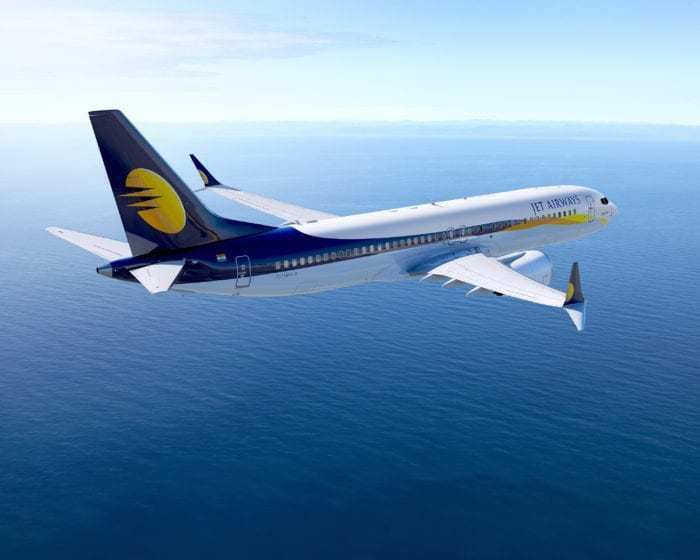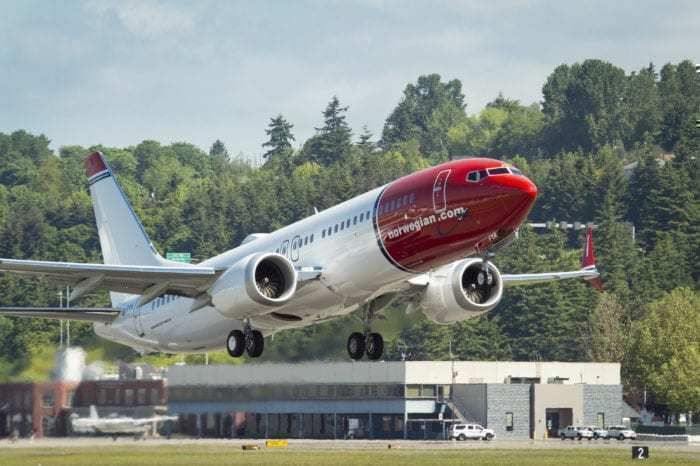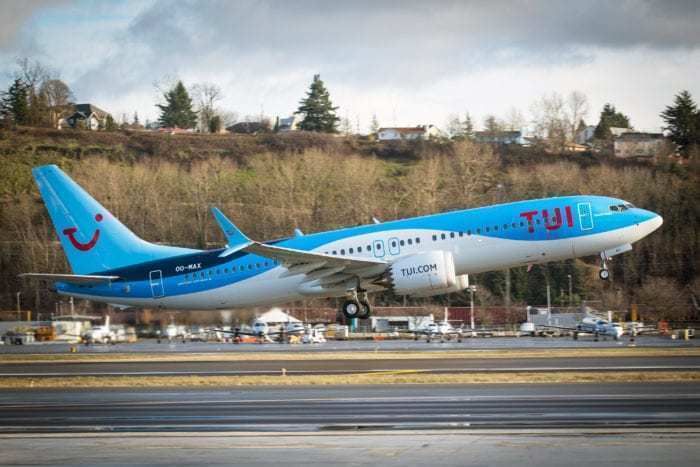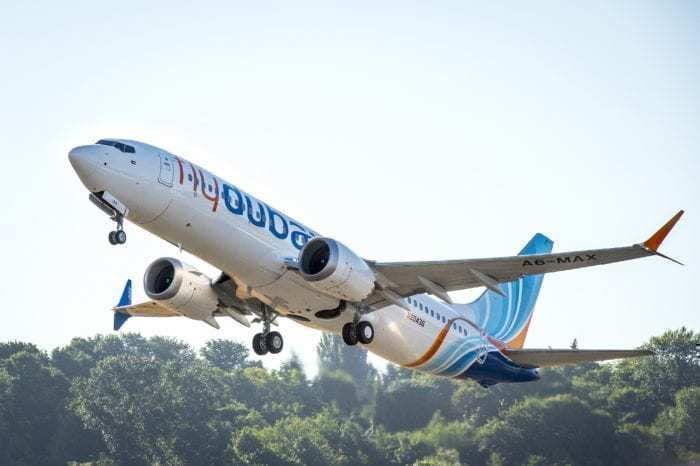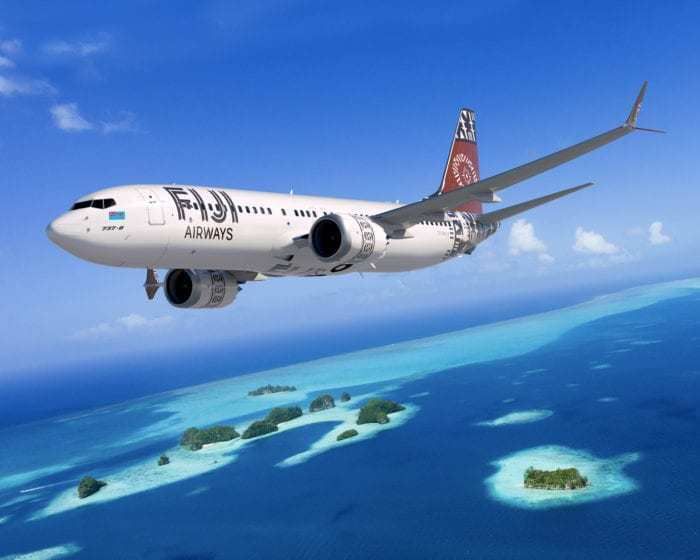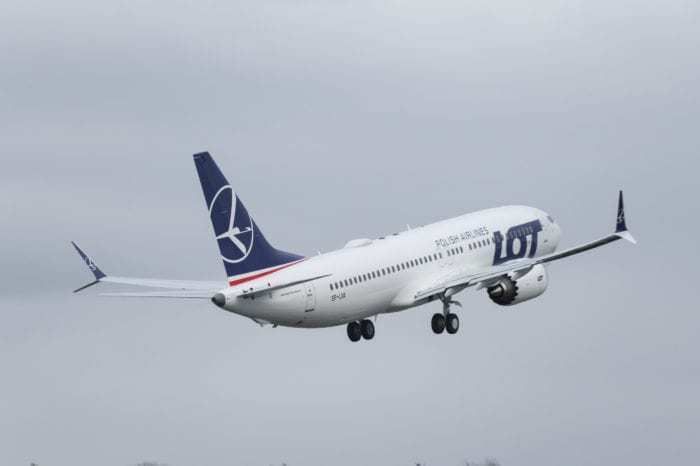Following the devastating Ethiopian Airlines crash which killed all 157 people on board, a number of airlines have begun suspending the use of the 737 MAX until they can be sure it is safe to fly. We take a look at who is performing a 737 MAX suspension as well as who isn’t, and why.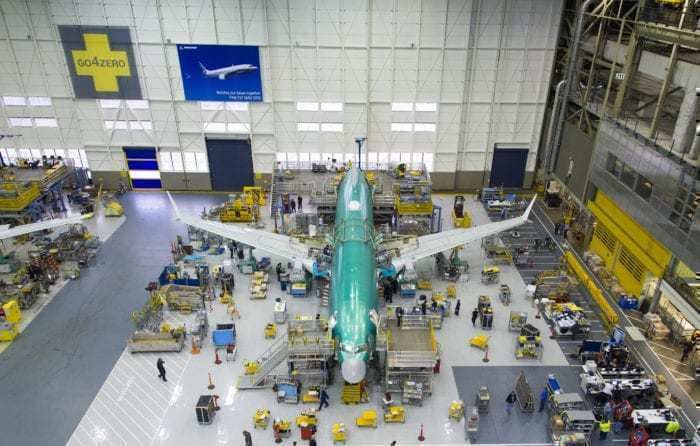 The accident involving a 737 MAX 8 aircraft is the second in five months, both resulting in complete loss of life. Thanks to the usually impeccable safety record of commercial jets, the 737 MAX now has the dubious accolade of being the deadliest airliner in our skies.
The accident involving a 737 MAX 8 aircraft is the second in five months, both resulting in complete loss of life. Thanks to the usually impeccable safety record of commercial jets, the 737 MAX now has the dubious accolade of being the deadliest airliner in our skies.
could have triggered a flight control system new on the 737 MAX 8 that relentlessly pushed the nose of the aircraft downward."Not conclusive, but the Ethiopian craft came down vertically, smashing nose first into the ground.
— Kevin Heldman (@kevinjayheldman) March 11, 2019
Although any link between the two accidents has yet to be proven, speculation abounds that it’s the same problem with the angle of attack sensor which caused the Ethiopian tragedy.
Immediately after the Ethiopian crash, the BBC reported that, according to FlightRadar24, the  ‘vertical speed was unstable after take-off', an issue which resonates painfully with those affected by the Lion Air crash last year.
As a result, a number of airlines have suspended the use of the 737 MAX aircraft, pending results of the ongoing FAA investigation.
Who’s suspended the 737 MAX?
We reported earlier today that China has grounded the 737 MAX. Under orders of the Civil Aviation Administration of China (CAAC), Chinese airlines should not use the aircraft until they can be assured it is safe to fly.
According to Boeing sales data, this includes carriers such as Air China, China Eastern, China Southern, Shandong, Xiamen, Hainan and Shenzhen Airlines. Overall, around 100 737 MAX aircraft are grounded in China.
China were the first to issue a grounding notice, which at the time was thought to be more of a political swipe at the US than a serious safety concern. However, since then, others have followed suit.
Next to announce a grounding was Indonesia. This put Garuda Indonesia and Lion Air’s 737 MAX aircraft out of action, although Lion Air were said to still be using them from their Thai operations base.
India have also announced an urgent safety review of any 737 MAX aircraft operating in their country. This would affect Jet Airways and Spice Jet primarily. However, at this time it doesn’t appear that they plan to ground these aircraft, but the DGCA has issued additional safety instructions for flying the 737 MAX with only ‘very experienced pilots’ allowed to use them.
South Korea are working with Eastar Jet Co to ensure the safety of the two 737 MAX 8 aircraft in their fleet. They are currently the only carrier in the country to operate the aircraft, although Korean Air Lines and Jeju Air have 70 on order between them.
As well as national action over the 737 MAX issue, individual airlines are also taking steps to ensure the safety of their operations. Understandably Ethiopian Airlines have grounded their four remaining 737 MAX 8 aircraft in Addis Ababa, and Comair, a partner of British Airways in South Africa, have grounded their one 737 MAX 8.
Reports also state that Royal Air Maroc have temporarily grounded their two 737 MAX aircraft, and that MIAT Mongolian Airlines have also suspended use of their 737 MAX 8.
UPDATE: 01:20 UTC - Aeromexico suspend MAX 8
Just in, we have been notified by Aeromexico that they are now suspending 737 MAX 8 flights. Previously they had told Simple Flying:
“Aeromexico is deeply saddened by the Ethiopian Airlines flight ET302 accident. We would like to extend our sympathies to all the families and friends of the victims of this tragic event and to all the Ethiopian Airlines team. Aeromexico has been in constant communication with the manufacturer and the corresponding aeronautical authorities, therefore communicates to its customers that it has confidence in operating the 6 Boeing 737 MAX 8 aircraft. These aircraft are in perfect conditions and in compliance with their maintenance programs. The airline will promptly follow the investigation and recommendations of the manufacturer and the aeronautical authorities. For Aeromexico, safety is the top priority and will continue to work under the highest international standards.â€
Now they have updated us on their fleet of six 737 MAX 8 aircraft, saying:
"Regarding the situation of the Boeing 737 MAX 8 aircraft and Ethiopian Airlines flight ET302, Aeromexico would like to inform that it is maintaining ongoing communication with the manufacturer and the corresponding aeronautical authorities. The airline reiterates that it has full confidence in the safety of the fleet and that during the last year, it has operated the Boeing 737 MAX 8 aircraft in safe, reliable, and efficient conditions."
They went on to say:
"Nevertheless, Aeromexico has decided to temporarily suspend the operation of its 6 Boeing 737 MAX 8 aircraft until more thorough information on the investigation of the flight ET302 accident can be provided. For Aeromexico, the safety of its operations and the peace of mind of its customers is the top priority. The flights operated with these aircraft will be reassigned throughout the rest of the fleet. Aeromexico will keep customers informed through its official channels: aeromexico.com, Call Center 1-800-237-6639, and through the Twitter account, @AM_Escucha."
Notably absent from the list of suspended 737 MAX services are some of the largest operators of the jets. Southwest Airlines with 34, Air Canada with 24, American Airlines with 24 and Norwegian with 18 are all continuing to press on with their fleet despite concerns from passengers and other carriers.
What do other airlines think of the situation?
We asked some of these airlines to clarify their thoughts on the situation, and why they are continuing to use the 737 MAX 8 in the current climate. We had a good number of responses, although most were saying pretty much the same thing.
American Airlines, who operate 24 of the aircraft, responded to our query with this statement:
“American Airlines extends our condolences to the families and friends of those on board Ethiopian Airlines flight 302. At this time there are no facts on the cause of the accident other than news reports. Our Flight, Flight Service, Tech Ops and Safety teams, along with the Allied Pilots Association (APA) and Association of Professional Flight Attendants (APFA), will closely monitor the investigation in Ethiopia, which is our standard protocol for any aircraft accident. American continues to collaborate with the FAA and other regulatory authorities, as the safety of our team members and customers is our number one priority. We have full confidence in the aircraft and our crew members, who are the best and most experienced in the industry.â€
Understandably they, along with other carriers, are navigating something of a maelstrom online regarding their continued use of the jet. They maintain their stance to customers too:
Air Italy have just three 737 MAX 8’s in their fleet, and stated that:
“As an airline, the safety and security of our passengers is always our first and key priority. With regard to the B737 Max 8 and indeed all aircraft that we operate, we are in full compliance with all the regulators' instructions and manufacturer’s operating procedures. Air Italy is in constant dialogue with the authorities and will follow all directives to ensure the maximum level of safety and security. We will issue further updates as necessary.â€
One of the more major operators of the 737 MAX is low cost long haul king Norwegian. Their statement, issued by Tomas Hesthammer, Norwegian’s Director of Flight Operations, said:
“Our thoughts go out to everyone affected by this tragic accident. All of our Boeing 737 MAX aircraft are operating as normal. We are in close dialogue with Boeing and follow their and the aviation authorities’ instructions and recommendations. Our passengers’ safety is and will always be our top priority.â€
Passengers travelling in Europe will be familiar with the UK based TUI Airways, specialists in package holidays and charter flights to leisure destinations. They pointed out that there are only 15 Boeing 737 MAX 8 aircraft in the whole TUI Aviation fleet, and a spokesperson commented that:
“We do not comment on any speculation and we are, as always, in close contact with the manufacturer. We have no indication that we can’t operate our 737 MAX in a safe way like we do with all other planes in our network.â€
US based Southwest Airlines are the world’s largest operator of the 737 MAX 8. Their statement said:
“Our heart goes out to the families and loved ones of the passengers and Employees on Ethiopian Airlines Flight 302. As Southwest operates a fleet of 34 Boeing 737 MAX 8 aircraft, we have been in contact with Boeing and will continue to stay close to the investigation as it progresses. We remain confident in the safety and airworthiness of our fleet of more than 750 Boeing aircraft.â€
When asked whether passengers could change flights if they didn’t want to travel on a MAX 8, they said: “We don’t have any changes planned to our operational policies or procedures.â€
Along with other operators who do not plan to ground their aircraft, Southwest have been fielding numerous queries on Twitter too:
A smaller operator of the aircraft, Fly Dubai, also plan to continue using the 11 737 MAX 8’s in their fleet. Their spokesperson said:
“We are deeply saddened to hear about the tragic loss of Ethiopian Airlines Flight ET 302. Our thoughts are with the families and friends who have lost their loved ones at this difficult time. flydubai went through a rigorous process to identify the right aircraft that met the requirements of our operations. The introduction to our fleet of a new model of aircraft is regulated by the FAA. This is also approved by the relevant authorities and regulators. The aviation sector is highly regulated and flydubai rigorously adheres to all regulations.â€
They went on to share a statement released to the press today:
“We are monitoring the situation and continue to be in touch with Boeing. We remain confident in the airworthiness of our fleet. The safety of our passengers and crew is our first priority.â€
In regards to changing flights, they clarified that passengers would be allowed to amend their booking ‘subject to the rules of the fare type they have booked’. They said they are responding promptly to any customer enquiries received in order to be ‘as helpful as possible to our customers although this is from a small number’.
Another minor operator, Fiji Airways with just two 737 MAX 8s, issued a statement to Simple Flying also:
“We are incredibly saddened to hear of the tragic accident involving Ethiopian Airlines Flight 302, and are following the situation closely. We extend our deepest sympathies to everyone affected and our thoughts are with them at this very difficult time. We have full confidence in the airworthiness of our fleet, as certified by our engineering team in accordance with Fijian and FAA standards. Fiji Airways followed a comprehensive induction and training process for our new Boeing 737 MAX 8 aircraft. Fiji Airways' robust training programme is a core part of our commitment to safety. Our Boeing 737 pilots and cabin crew receive extensive ground and simulator training, over and above the mandatory training set for the MAX 8 by the manufacturer. We continue to ensure that our maintenance and training programme for pilots and engineers meets the highest safety standards. The safety of our passengers and crew is, and always will be, our number one priority.â€
One of our reporters, Jay, recently had something of a hair raising experience on a Fiji Airways 737 MAX 8, although we have no indication that there is any related issue at this time.
In Eastern Europe, LOT Polish Airlines operate five of the 737 MAX aircraft. They told Simple Flying:
“Each of the Boeing 737 MAX 8 operated by LOT Polish Airlines is fully airworthy and all LOT's flights served by this type of aircraft meet the highest safety standards. Our maintenance service is monitoring the airplanes’ efficiency, reliability and airworthiness on the regular and detailed basis. LOT remains in contact with the European and American aviation safety agencies and follows all instructions and directives. We keep in touch with the manufacturer as well as other airlines flying the Boeing 737 MAX. Based on current experience and knowledge LOT, as well as other airlines in Europe and North America, continues operations with this type of aircraft. We are closely monitoring the situation, collecting and analyzing information from different sources in order to ensure the highest safety standards on our boards.â€
They went on to say:
“LOT operates Boeing 737 MAX 8 since December 2017 and currently has a fleet consisting of 5 airplanes of this type. Other 9 Boeing 737 MAX 8 are scheduled to be delivered throughout this year.â€
Talking to us on behalf of Silk Air, an SIA spokesperson said:
“We are saddened by the loss of flight ET302 and our hearts go out to those affected. We are in contact with Boeing and are closely monitoring developments. The safety of our passengers and crew is of utmost importance to SilkAir. At this point SilkAir’s 737 MAX 8 flights are operating as scheduled.â€
However, since this statement was given to Simple Flying, the New York Times has reported that Silk Air have grounded their six 737 MAX 8s.
The second largest operator of the 737 MAX 8 is Air Canada. With 24 aircraft in their fleet, we were keen to hear their take on the situation. They told us:
“We have operated this aircraft type since 2017 and currently have 24 in our fleet. We have extensive analytical data supporting the safety of these aircraft, which have also performed excellently from reliability and customer satisfaction perspective. We continue to monitor the situation and based on current information, and recommendations by government safety regulators, including Transport Canada, the FAA, and the manufacturer, we continue to operate our normal B737 schedule.â€
They confirmed that their usual rebooking policies remain in place
Fellow Canadian Airline Sunwings were unavailable for comment, but in a flawless example of bad timing, this tweet was spotted earlier today:
The last of the US ‘big three’, United Airlines, were quick to point out that they do not have any MAX 8 aircraft on their fleet. United Airlines currently has 14 MAX-9s in operation, and supplied the following statement to Simple Flying:
“We are deeply saddened by the tragedy involving our Star Alliance partner, Ethiopian Airlines. Our sincerest condolences go out to the families and loved ones of the passengers and crew on board Ethiopian Airlines Flight 302.  We have made clear that the Boeing 737 MAX aircraft is safe and that our pilots are properly trained to fly the MAX aircraft safely.â€
Customer concerns
Although the majority of airlines seem positive that there is no immediate danger posed by the 737 MAX 8, social media has been blowing up all day with questions from concerned travelers regarding the current state of affairs.
Please ground the Boeing 737 MAX plane - two different pilot crews were unable to safely fly and control the plane. It must be grounded for safety reasons. Don't wait for another crash to occur.
— Phil Milling (@philmilling) March 11, 2019
Many passengers are calling for the FAA to force suspension of the MAX 8 until its safety can be proven.
In terms of a mass grounding of 737 MAX aircraft, an instruction such as this from the FAA is not entirely unprecedented. In 2013, all 787s had to stop flying temporarily due to an issue with the aircraft’s battery system. However, it is pretty rare for this to happen and, frankly, so it should be. Mass groundings suggest a fundamental flaw in the design or manufacturing process, and that’s not what we want from one of the world’s biggest plane makers.
However, it’s unlikely anything will happen from an official standpoint until a thorough investigation has been completed. Should the issue with the Ethiopian Airlines accident turn out to be the same MCAS fault as the Lion Air crash, then we could see a repeat of the 787 grounding again.
So far, the FAA have said:
“The FAA continuously assesses and oversees the safety performance of US commercial aircraft. If we identify an issue that affects safety, the FAA will take immediate and appropriate action.â€
As always, Simple Flying will keep you updated with the latest as we hear it.

